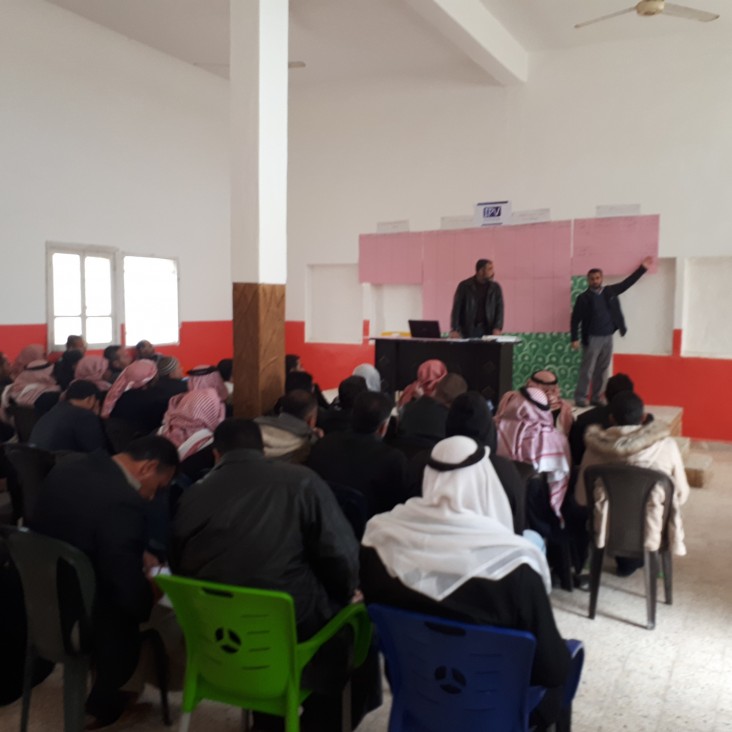Speeches Shim

USAID support for livestock breeders spurs economic recovery and sustainable livelihoods
Zaid*, a dairy farmer from the Deir-ez-Zor governorate of northeast Syria, is the proud descendent of generations of dairy farmers. Prior to the start of the Syrian civil war, Deir-ez-Zor was a center of dairy production in Syria. However, since 2011, the conflict has made it difficult for farmers to breed and raise their livestock due to increased costs, such as animal feed. On top of high costs, farmer-produced dairy products would often spoil before they could be brought to markets due to the lack of storage, tools and facilities.
Many farmers had to take drastic action, such as selling their livestock, in the hope of recouping the money they lost. “We suffered because of the war and experienced a horrible situation. I used to have to sell one or more of my sheep in order to buy feed,” Zaid explained. Unfortunately, selling his sheep was not a sustainable solution for Zaid. Livestock prices had fallen drastically while the costs of materials, like feed and equipment, continued to rise.
Zaid and many others considered shutting down their farms and looking for other ways to support their families. But with high unemployment rates and a weakened economy, most dairy farmers have struggled to secure alternative sources of income and often fall further into poverty.

Last year, Zaid and fellow dairy farmers attended USAID workshops aimed at pinpointing key challenges in the local dairy value chain and identifying possible solutions. The workshops, held in collaboration with the Deir-ez-Zor Civil Council’s Animal Welfare Unit, were part of the USAID-supported effort to revitalize the dairy value chain in Deir-ez-Zor and improve farmer livelihoods. At the workshop, Zaid and other participants highlighted some of their main challenges, including the high costs of animal feed, milk storage tools, and feeding apparatus.
To address these challenges, USAID partnered with a local Syrian non-governmental organization (NGO) to provide 400 local dairy farmers with farm assistance packages. The packages included feed bins, water dispensers, water tanks, milking containers, and work clothes that provide immediate benefits to farmers by increasing the efficiency and safety of milk production.
“We used to waste a lot of feed and water. The water tank and feeders were very useful. No more waste” said Zahra*, a female cow breeder.
The assistance packages also addressed the storage challenges for dairy products-- decreasing the number of spoiled products. “Now it is possible to store the milk in the plastic container for days, as sometimes the person who buys the milk is late, therefore, we started selling more milk,” said another cow breeder. He added that, “This has encouraged us to buy more livestock.”
This USAID project helped Zaid improve his financial situation and he is no longer planning to shut down his farm. He summed up the impact saying, “My income increased. I was saving 100-150 thousand SYP [~290 USD] to buy a water tank, feeders, and other tools. When I got these supplies from the project, I used the money I saved to purchase house essentials. Now I don’t have to sell any of my sheep, and the ewe I was planning to sell gave birth and instead I bought 20 more sheep!”
USAID continues to support Deir-ez-Zor’s dairy farmers to return to their former production routines. The dairy value chain is one of five value chains supported by USAID in northeast Syria to help spur economic recovery. USAID’s continued investment in sustainable livelihoods is empowering people across northeast Syria to create a more self-reliant future.
*Pseudonym

Comment
Make a general inquiry or suggest an improvement.